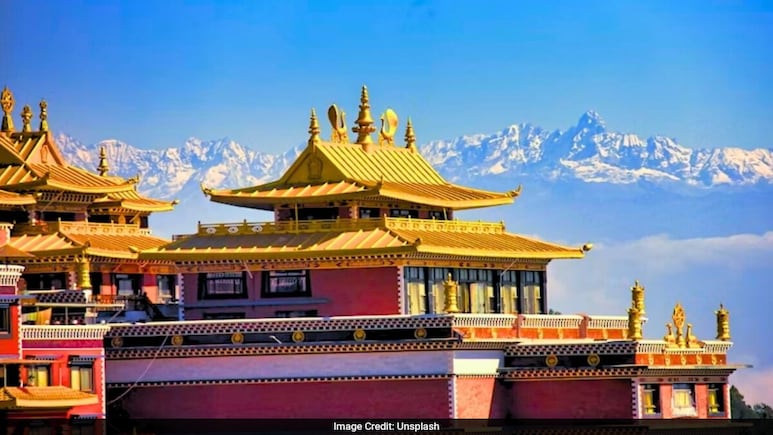
Nepal, a country located between India and China, has recently been in the news for political unrest and youth-led protests. But beyond the headlines, it is a country of historical, cultural, and geographical importance. Home to Mount Everest, the tallest peak in the world, and Lumbini, the birthplace of Lord Buddha, Nepal is known for its spiritual heritage, landscapes, and vibrant traditions. Here are ten important facts about Nepal:
1. Capital City
Kathmandu, the capital of Nepal, is the country's political, cultural, and economic hub. Known for its historic temples and bustling streets, it is also home to several UNESCO World Heritage sites.
2. Population
According to the World Health Organisation (WHO), Nepal's population was 29.6 million in 2023. By 2050, it is expected to rise by 17% to reach nearly 34.6 million.
3. Shared Borders with India
Nepal shares an open border with India across five Indian states: Sikkim, West Bengal, Bihar, Uttar Pradesh, and Uttarakhand. Relations are marked by cultural, linguistic, and religious ties between people on both sides.
4. Administrative Divisions
Nepal is divided into 7 provinces and 77 districts, each with its own local administration. This federal structure was introduced under the 2015 Constitution.
5. Natural World Heritage Sites
Nepal is home to two UNESCO-recognised natural wonders:
- Sagarmatha National Park
- Chitwan National Park
6. Cultural Sites
The country has several cultural sites, including:
- Kathmandu, Patan, and Bhaktapur Durbar Squares
- Swyambhunath Stupa (Monkey Temple)
- Pashupatinath Temple
- Boudhanath Stupa
- Lumbini (birthplace of Buddha)
- Changu Narayan Temple
7. Geographical Regions
Nepal is geographically divided into three main regions:
- The Himalayan region (mountainous north)
- The Mid-Hill region
- The Terai plains (fertile southern belt)
8. Birthplace of Lord Buddha
Lumbini in southern Nepal is the birthplace of Lord Buddha in 623 BC. The Ashokan pillar, erected in 249 BC, still marks this sacred site, making it one of the most important Buddhist pilgrimage destinations in the world.
9. Highest Peak: Mount Everest
Mount Everest, standing at 8,848 meters, is the tallest mountain in the world. While climbing Everest is a global dream, the Everest Base Camp trek is also a popular adventure for thousands of visitors each year.
10. Unique National Flag
Nepal's national flag is the non-rectangular flag in the world. It has a red base with blue borders, features the sun and the crescent moon.
From being the land of Everest and Buddha to its rich culture and deep ties with India, Nepal holds a special place in South Asia and the world.
